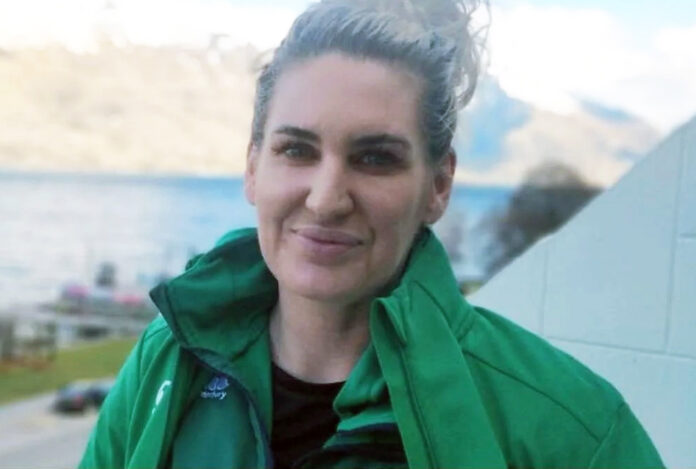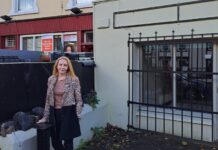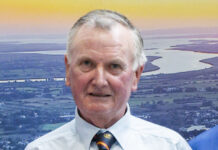AFTER saving a man’s life the previous weekend, a Limerick woman has been credited with helping Ireland’s rugby heroes secure their first victory over the All-Blacks in New Zealand yesterday.
Sarah Hartigan’s first-aid training came to the rescue of Waikato rugby union official Dean Herewini when he suffered a heart attack while parking his car before the first test match of the summer tour in Aukland which Ireland lost on Saturday week.
And her life-saving intervention ensured that at least one New Zealand family was supporting the men in green at the Forsyth Barr Stadium in Dunedin when they scored a hugely impressive 23-12 win over the three-time world champions.
Speaking on the ‘Sunday with Miriam’ RTÉ radio programme this morning, the Castleconnell woman light-heartedly told presenter Miriam O’Callaghan that the support of the Herewini family helped get the Irish team across the finishing line.
Sara, who is manager of the Munster women’s senior rugby team, is working with Rugby Travel Ireland leading a group of supporters on the four-week tour of New Zealand.
Asked where she learned her life-saving skills, the former UL Bohemians second-row forward said that even as a teenager she was involved in life-saving.
“I worked as a lifeguard in the University Arena and I’ve always been involved in sports, so the importance of knowing CPR when you’re involved in sports was always in my mind.
“Recently enough at UL Bohs we got a group retrained and re-skilled with a CPR and defibrillator course through John Holland, our physio who’s also a paramedic.
“Things like this can happen. You don’t know how you’re going to react on the day but so long as you’re some bit skilled you can help.
Recalling the incident outside Eden Stadium in Aukland, she said that when she heard the crash she went outside and could see someone slumped in the car.
“His daughter was there and she was upset. People were trying to call an ambulance, so I just went over to help. Nobody was really going into the car. Obviously, anybody that was on the scene was pretty shocked at the time.
“I just jumped in and started to do compressions. I tried to see could we get him out of the car but, the way the car was set, we really couldn’t manage that so I just got the seat back as best we could and just gave the compressions.
“It didn’t take too long for him to respond. about a minute, maybe two. He came around quite fast and he just took a breath and woke up. He was looking around, saw the heads looking in the windows and said ‘what’s going on, why are all these people looking at me?
“The little bit I did helped him a lot. He didn’t remember anything of what happened”, Sara added.
After his twin brother established initial contact, 56 year-old Mr Herewini phoned Sara on Friday to thank her for saving his life.
“We were having banter about the match. So I think we had a few extra Kiwi supporters on our side who might have got us over the line.
“He’s doing great and it was lovely to hear he was getting on so well. It’s so obvious how loved he is in his family and his community and all the girls that he trains so it’s a great story to be involved in. I was just so happy be be there and to help.
Stressing the importance of CPR, she encouraged more people to undergo basic first aid training.
“It’s not too difficult to get a group together and get to know the basics. The little bit that I did that day helped him. That basic skill of compressions on chest and what it did. Get your club, your school or your business to organise CPR training,” she said
“I’m not looking to get any credit from this. The most important thing is to bring awareness about how important basic training is. Even the basics can save a life. You don’t need to know a whole amount about CPR to help.
“I know the percentage of people surviving outside of a hospital is pretty low but this just proves that it can be done, that the basic compressions on a chest can bring somebody back to get them to the right place so they can be looked after,” she explained.











